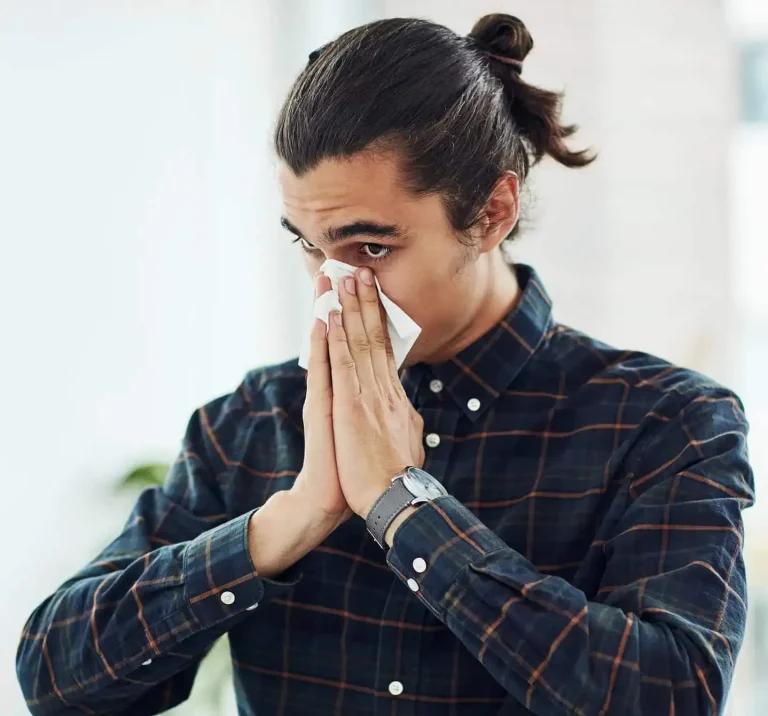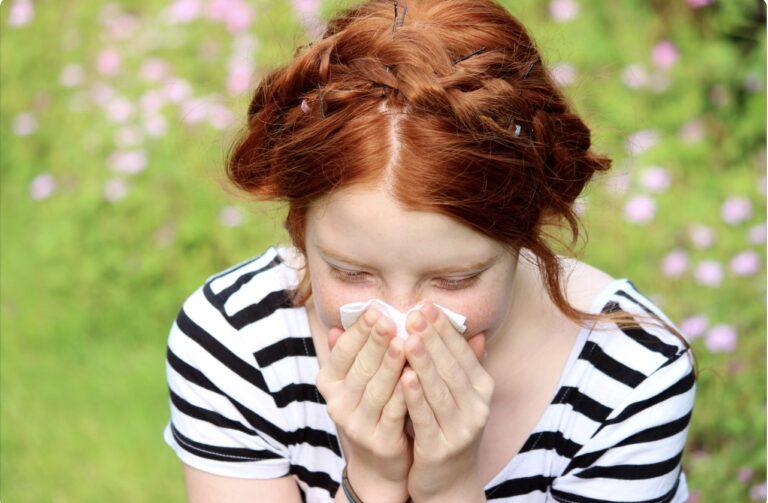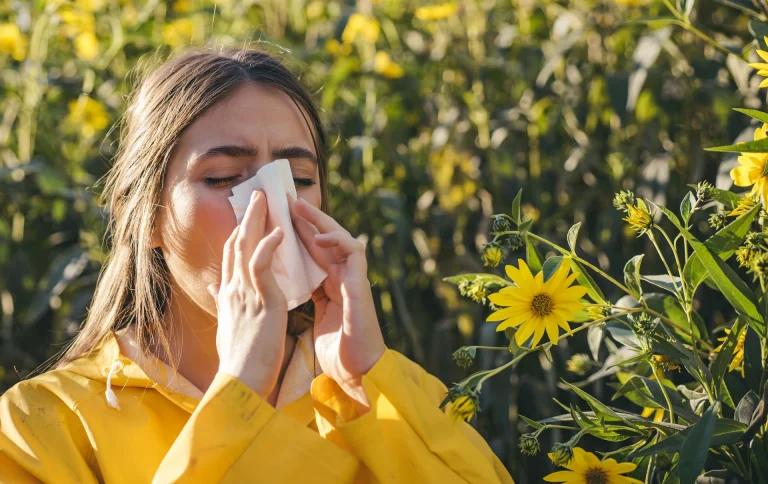
As the temperatures drop and the days grow shorter, many people brace themselves for the onset of winter’s chill. However, for those who suffer from seasonal allergies, the winter months can bring a whole new set of challenges. Contrary to popular belief, allergies don’t simply vanish when summer fades. Surprisingly, winter can be a prime time for allergy flare-ups. From indoor allergens to unexpected triggers, the winter allergy landscape can be a daunting task. Here, we’ll delve into winter allergies, exploring the causes, symptoms, and effective ways to help you reclaim your comfort and well-being during the cooler months.
Understanding winter allergies
Many individuals mistakenly assume that allergies are only a warm-weather problem, limited to the seasons of spring and summer. However, the reality is far more complex. Allergies can strike year-round, and the cold weather of winter months can bring their own unique set of challenges. While pollen from trees, grasses, and weeds may not be as common during the colder seasons, there are a range of other allergens that can wreak havoc on the immune system.
The unseen culprits: Indoor allergens
When temperatures fall and we spend more time indoors to escape the chill, we often find ourselves surrounded by different allergy triggers. Dust mites, cockroach droppings, pet dander, and indoor mold spores can thrive in warm enclosed environments, leading to an increase in allergy symptoms. As we seal up our living spaces to conserve heat, these indoor allergens become concentrated, increasing their impact on those with sensitive immune systems.
Seasonal shifts and unexpected triggers
Certain seasonal factors can also contribute to winter allergies. The changeover from fall to winter can change weather patterns, which can trigger allergic responses in some individuals. Temperature fluctuations, increased humidity, and even the use of indoor heating systems can all play a role in worsening allergy symptoms during the colder months.
Symptoms of winter allergies
Distinguishing allergies from the common cold
The overlap between winter allergy symptoms and common cold symptoms can make things challenging, especially during the winter season. While both conditions can cause sniffling, sneezing, and nasal congestion, there are key differences that can help you identify the root cause of your discomfort.
One of the distinctive signs is the time span of the symptoms. Allergy symptoms tend to persist as long as the individual is exposed to the triggering allergen, whereas cold symptoms typically settle within 7-10 days. Additionally, allergies are often accompanied by itchy, watery eyes and a lack of fever, while colds are more likely to cause body aches, fever, and a thicker nasal discharge.
The characteristic signs of winter allergies
The hallmark symptoms of winter allergies include:
- Itchy, runny nose
- Sneezing
- Nasal congestion
- Watery, itchy eyes
- Coughing
- Postnasal drip
- Itchy, sore throat
- Fatigue and malaise
These symptoms can range in severity, with some individuals experiencing mild discomfort while others struggle with more severe reactions. It’s important to pay attention to the timing and persistence of your symptoms, as this can provide valuable clues about the underlying cause.
Identifying the triggers
Uncovering the indoor culprits
As mentioned earlier, winter allergies are typically indoor allergens. Dust mites, pet dander, and mold spores are the most common indoor allergens, thriving in the warm, humid environments that often characterize our winter living spaces.
Dust mites, for instance, feed on the tiny flecks of skin we shed and can accumulate in bedding, mattresses, carpets, and upholstered furniture. Pet dander, on the other hand, is produced by the skin, saliva, and urine of our furry companions, and can become airborne as they groom or move around. Mold can grow in damp areas like bathrooms, basements, and even within HVAC systems.
Allergy management
Minimizing exposure to indoor allergens
Reducing your exposure to primary indoor allergens can be achieved through a combination of things:
- Regularly vacuum and dust your living spaces, paying special attention to bedding, upholstered furniture, and carpets, which can harbor dust mites and pet dander
- Consider replacing carpets with hard flooring, which are less attractive to allergens
- Use high-efficiency particulate air (HEPA) filters in your HVAC system and air purifiers to capture airborne allergens
- Regularly clean and maintain your home’s humidity levels using a dehumidifier, as mold thrives in damp environments
- If you have pet allergies, establish pet-free zones in your home, such as the bedroom, and groom them frequently to minimize dander
Medication and immunotherapy
When avoidance strategies alone are not enough several allergy treatments can provide relief for winter allergy sufferers. Over-the-counter antihistamines, decongestants, and nasal sprays can help reduce symptoms like sneezing, itching, and nasal congestion. For more severe or persistent cases, prescription medications or immunotherapy (allergy shots or sublingual tablets) may be recommended by your healthcare provider.
Immunotherapy, in particular, has shown promising results in desensitizing the immune system to specific allergens over time, potentially reducing the severity and frequency of allergy episodes. By gradually exposing the body to controlled amounts of the offending allergen, the immune system can learn to tolerate it, leading to long-term relief.
Complementary therapies
In addition to conventional medical treatments, some individuals have found success in incorporating complementary therapies to manage their winter allergies. These include nasal irrigation with saline solutions, herbal remedies, and dietary modifications.
It’s important to consult with your healthcare provider before trying any complementary therapies, as they may interact with medications or have other potential risks.
Conclusion
Contrary to popular belief, allergies don’t take a break during the winter months. The unique challenges of the colder season can amplify allergy symptoms, leaving many individuals feeling miserable and frustrated. However, by understanding the underlying causes of winter allergies, recognizing the telltale signs, and putting in place strategies, you can improve your quality of life during the winter season. Speak with your healthcare provider to develop a personalized action plan and explore the latest treatment options.
Sources
Medical Disclaimer
NowPatient has taken all reasonable steps to ensure that all material is factually accurate, complete, and current. However, the knowledge and experience of a qualified healthcare professional should always be sought after instead of using the information on this page. Before taking any drug, you should always speak to your doctor or another qualified healthcare provider.
The information provided here about medications is subject to change and is not meant to include all uses, precautions, warnings, directions, drug interactions, allergic reactions, or negative effects. The absence of warnings or other information for a particular medication does not imply that the medication or medication combination is appropriate for all patients or for all possible purposes.









